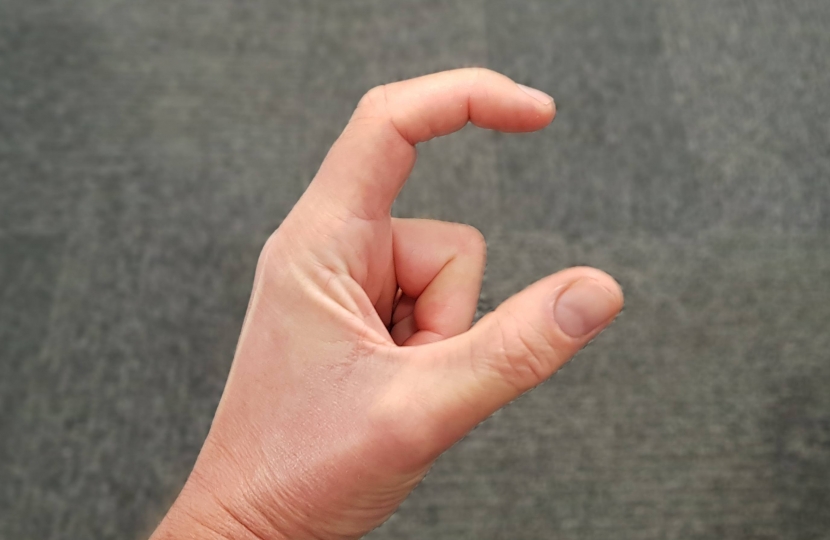
North Wales Assembly Member Mark Isherwood has called on the Health Minister to act on the concerns of sensory loss charities in North Wales and address the inequality in access to information for those with sensory loss.
Speaking in the Assembly Chamber yesterday, Mr Isherwood asked what the Welsh Government is doing to support those with sensory loss in Wales and highlighted the concerns raised with him by the sensory loss charities in North Wales.
He said:
“Just like people without a sensory loss, there's no one-size-fits-all way of providing information in accessible format for people with sensory loss. Some local authorities fund local organisations to provide support services to residents, enabling British Sign Language (BSL) users and, in some cases, people who identify as Hard of Hearing or Deafened, whilst others have no provision at all.
“The services that do exist not only provide people with a sensory loss access to information, but also often go hand in hand with an advice or advocacy service. But for local authorities and Government departments, provision of information is usually produced in BSL only or in BSL with subtitles, without access to people with a Visual Impairment, although videos etcetera could be produced with that provision, and provision in both Welsh and English languages also.
“These concerns have been raised with me by sensory loss charities in North Wales. How, therefore, will you respond to their concern that the inequality in access to information for people with sensory loss is affecting the people they work with and that we need parity of funding between the general population, for access to information, and that for people with sensory loss in all local authorities and not just those that choose to do so?”
The Health Minister, Vaughan Gething AM, invited Mr Isherwood to write to him “with detail of those areas where he does believe there's an inequality in provision” so he can “undertake to look at whether there is more that we could do or whether it is a matter for local authorities to resolve issues themselves”.
Mr Isherwood added: “As a Sensory Loss Charity told me in North Wales, ‘there is no reason why videos cannot be produced with British Sign Language on screen, subtitles in both English and Welsh, and voiced over in both languages, making them accessible for people with a visual impairment, or low literacy skills”.
